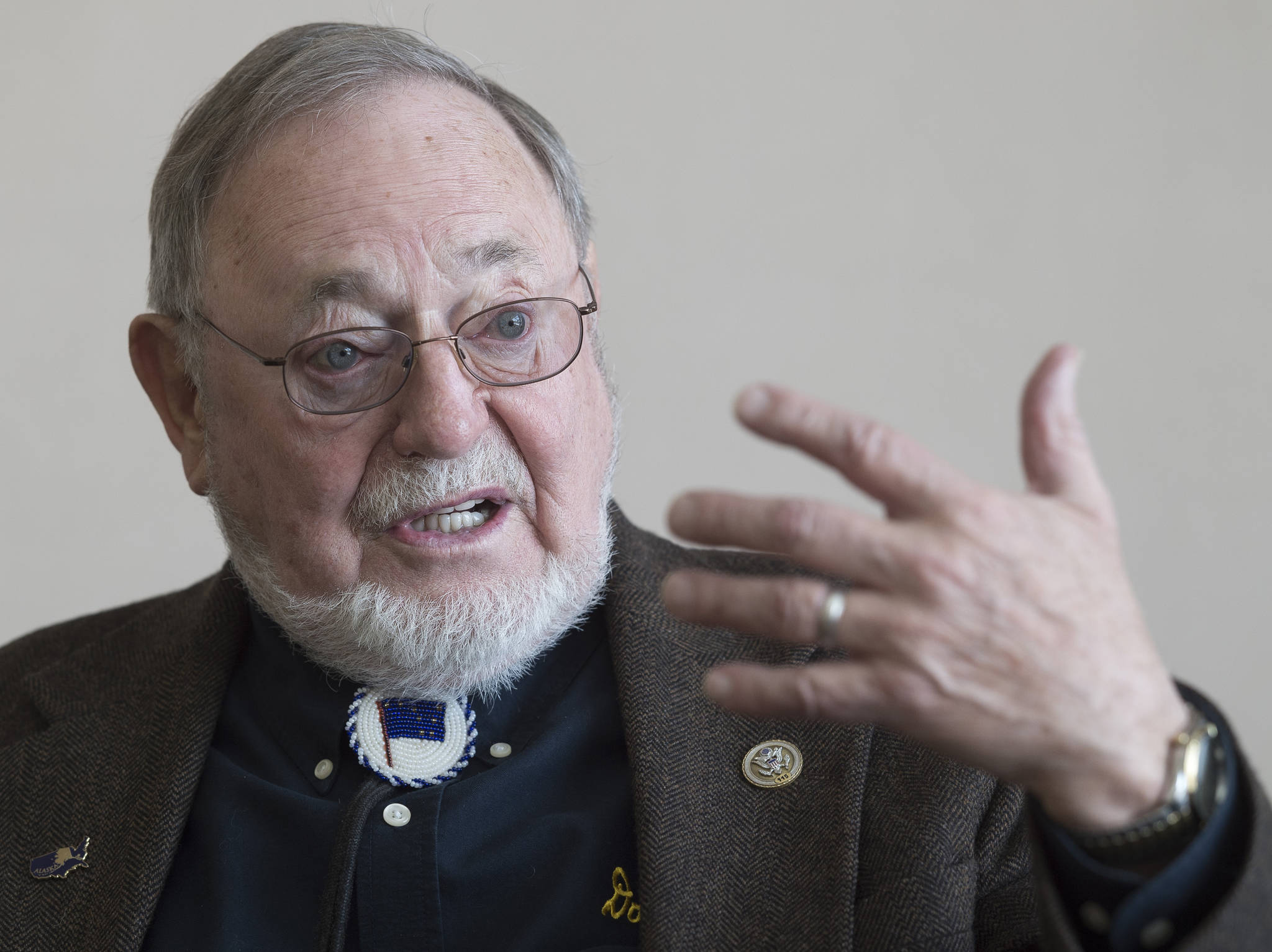“We must remain committed to the bipartisan, bicameral tradition of fisheries management,” Rep. Don Young wrote last Sunday, “and my legislation accomplishes just that.” He was referring to the reauthorization of Magnuson-Stevens Act. But when the House passed it on Wednesday, only nine Democrats voted in favor of it. Which explains why, in the same opinion piece, Young complained about “the hyper-partisan mentality” his “Democratic colleagues subscribe to.”
[Partisanship shouldn’t undermine our fisheries]
Like the breakup of a marriage, there are two sides to this story. The reason why Young is arguing from both might be that he was caught in the middle.
The original MSA is a landmark piece of legislation passed in 1976. Young says he authored it and worked with Alaska’s Ted Stevens and Warren Magnuson, a Washington State Democrat, to get it passed in the Senate. Its goal, as explained by Sam Cotton, Commissioner of the Alaska Department of Fish and Game, “is to get the most benefit from our fisheries for food and economic well-being while conserving ecosystem health and fish stocks for continued productivity to benefit future generations of fishing families and coastal communities.”
“Economic well-being” is a rightward leaning idea that “ecosystem health” attempts to balance from the left. Satisfying both demands in one complex regulation is no easy task.
Regulation is a key word in this dispute. Republicans today, including Young, are focused giving more authority to the states by reducing them on the federal side. That is, unless it’s one like the MSA that comes to the aid of their constituents. Those they salute, as Young did when he referred to the current law as a “true testament to how bipartisan efforts can improve policies that impact millions and affect our economy.”
When Young and Stevens collaborated with Magnuson four decades ago, they were almost entirely driven by economic concerns. Unregulated foreign fishing fleets were a serious threat to America’s commercial fishing industry. The law countered it by establishing an exclusive economic zone that extended 200 nautical miles out from our shores.
The MSA “worked so well that domestic fishing soon replaced foreign fleets in overexploiting U.S. fisheries” wrote Democrats on House Natural Resources Committee in the dissenting statement they attached to the committee’s report. “Everybody recognized the need to address the number of declining and collapsed fish stocks.”
That’s why there was bipartisan support for the 1996 Sustainable Fisheries Act. It amended the MSA to prevent overfishing, reduce unintended bycatch, rebuild depleted stocks and protect essential fish habitat. And in 2007 both sides agreed to require annual catch limits in all fisheries be science-based.
Title III of Young’s bill is “Healthy Fisheries Through Better Science.” But titles don’t establish policy. And in cases like climate change, Republicans don’t trust scientists if their findings aren’t compatible with the party’s vision of economic freedom.
That record lends credibility to the Democrats’ complaint that the flexibility the bill gives to fishery councils will allow them to make “politically-driven management decisions that hurt fishing communities in the long run.” And it may be why Republicans rejected amendments that Democrats claim would “ensure catch limits are based on sound science” and “integrate climate change considerations in fishery management.”
Young doesn’t mention any of these details in his opinion piece. And I wonder why. Because Democrats aren’t blaming him for what they see as the bill’s fatal flaws. He “agreed to work with Democratic Members and staff to develop a bipartisan bill” they wrote, but Rep. Rob Bishop, the committee chairman, “pulled the plug on promising negotiations and rushed to markup with a half-baked mashup of bad ideas that … deserves to be called the Empty Oceans Act.
That certainly sounds like the “partisan rancor” Young complained about. But perhaps he should be pointing his finger at Bishop instead of Democrats. The Utah representative arrived in Congress too late to appreciate the value of bipartisan cooperation. And that his state’s Great Salt Lake is indeed empty may be why the health of fish stocks in the ocean isn’t a priority for him or his constituents.
In any case, the bill is now headed to the senate where Sen. Lisa Murkowski’s chairs its Committee on Natural Resources. Alaska’s commercial fisheries are important to her. Maybe she’ll deliver a bipartisan version of the MSA reauthorization that Young really wants.
• Rich Moniak is a Juneau resident and retired civil engineer with more than 25 years of experience working in the public sector. He contributes a weekly “My Turn” to the Juneau Empire.

